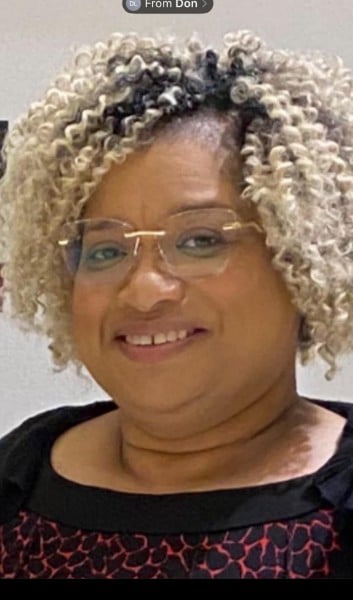
Vanessa Smith, LCSW, LPC: A Journey in Mental Health and Social Work
by Dr. DeeDee Reese
On March 12, I had the privilege of sitting down with Vanessa Smith, a Licensed Clinical Social Worker (LCSW) and a Licensed Professional Counselor (LPC). Vanessa, who started as a Licensed Master Social Worker (LMSW), shared her journey through education and career development, shedding light on her passion for mental health and social work.
Vanessa initially aspired to become a child psychiatrist but later transitioned into social work after a conversation with a sociology professor. She began her graduate studies in social work but had to pivot when her chosen program lost accreditation. This led her to pursue a degree in sports administration, where she worked with student-athletes and recognized the need for a counseling background.
She then pursued a degree in guidance and counseling, which allowed her to work with student-athletes and later in a day hospital. After the day hospital closed, she worked in mental health rehabilitation and a state pilot program for children. Eventually, Vanessa worked for Social Security, placing her licensure on hold. When she returned to the private sector, she decided that obtaining her LCSW would be more beneficial and marketable than simply maintaining an LPC. She pursued her LMSW, gained experience, and then completed her LPC and LCSW licensure, a journey that required extensive education, testing, and supervision.
Vanessa finds the most rewarding aspect of her work to be helping people realize their goals. “It’s not about what I think they need but about assisting them in understanding what they want and helping them accomplish it,” she says.
A typical day for Vanessa involves wearing many hats—answering phone calls, providing community resources, counseling individuals, leading substance abuse groups, and networking with other professionals. Her ability to navigate these roles highlights the necessity of multiple licenses.
One of the most memorable moments in her career was presenting at a conference about the intersection of mental health and criminal justice. She found it rewarding to educate and inspire others in the field, particularly those interested in working with reentry populations.
One of the biggest challenges Vanessa faces is advocating for clients when their best interests conflict with institutional goals. “Being knowledgeable and standing firm on what’s right for the client, even when others disagree, is difficult,” she explains. Despite the challenge, she remains committed to ethical and effective advocacy.
She emphasizes that mental health professionals must love what they do. “People can tell if you don’t genuinely care. If you’re just going through the motions, you won’t be effective.”
One of the best pieces of professional advice she received was from her LPC supervisor, Vicki Miller: always informed me, “It’s not just about meeting continuing education requirements; it’s about constantly learning to better serve people because times change, and so do the needs of our clients.” Vanessa’s role has evolved as she has learned new therapeutic techniques. Initially, she considered herself an eclectic counselor, using a mix of different approaches. Over time, she has leaned more toward Dialectical Behavior Therapy (DBT) and mindfulness, incorporating a holistic perspective on mental health.
Vanessa believes that addressing adverse community experiences is crucial to improving mental health. “We often talk about adverse childhood experiences, but we don’t always recognize the impact of adverse community experiences. If adults in a community face poverty, lack of education, and housing instability, they struggle to meet their basic needs, let alone provide stability for children.” She stresses the need for systemic changes to improve mental health outcomes at both individual and community levels.
Vanessa stays motivated by witnessing the progress of her clients. “Helping someone get what they need and seeing them succeed keeps me going.” At her nonprofit, Compassion for Lives, she finds fulfillment in bridging service gaps and seeing individuals achieve their goals.
Vanessa’s insights highlight the complexities of working in mental health and social work. Her dedication to advocacy, continuous learning, and community engagement sets a strong example for others in the field. As mental health professionals continue to face evolving challenges, her perspective underscores the importance of adaptability, empathy, and a deep commitment to helping others.